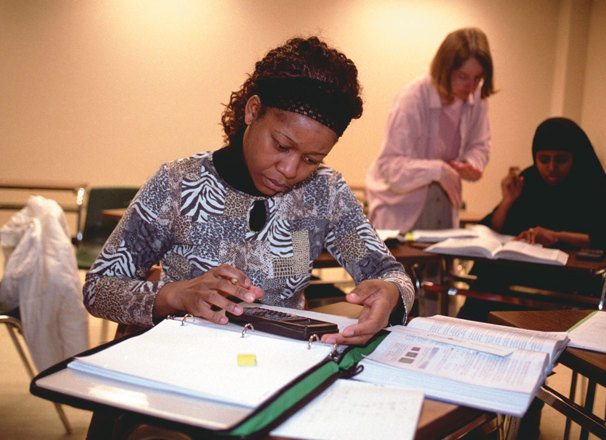How you see yourself in the world—your self-concept—changes with time and experience. Those changes can influence the type of career that will make you happy at different times in your life.
American psychologist Donald Super’s developmental self-concept theory presents a framework for understanding how what we think or believe about ourselves affects the direction we choose to go in our careers. It can be a helpful resource for both personal and professional development.
Who do you think you are?
Think back to when you were a child. What did you want to be when you grew up? Your ideas about who you are and what you could become were probably boundless. They’ve likely changed a lot since then.
Your combined successes and challenges in school, sports, your family, and your social circles have fuelled the ideas you have about yourself today.
How you see yourself will influence your choices about education and your ideal career. We’re drawn to careers we believe we can excel in.
Your self-concept will continue to evolve as you age. So will your interests and abilities. If you are self-aware, you’ll know how and when there’s been a shift, and you can decide to adjust your career path to match.
The more your personal identity, values, and preferences are in sync with your career, the more satisfaction you can expect to get from your work.
Super’s 5 stages of life
Super divides life into 5 distinct stages:
- Growth stage (birth to age 14)—When you’re a child, you start forming your first ideas about what you want to be when you grow up. You might look up to superheroes, or a relative or family friend with a larger-than-life presence, and decide you want to be just like them. There’s no reason not to at first. But your childhood dreams will slowly give way to the practical realities of growing up. Your ideas about a future career might change frequently during this stage.
- Exploration stage (ages 15–24)—As you head into adulthood, you start to explore your interests, skills, and values more seriously. You set short-term goals to focus your efforts. You might try out different jobs or different areas of study in post-secondary school. You’re curious about exploring your options. You’re trying to figure out what suits you best.
- Establishment stage (ages 25–44)—In your early to mid-20s, you begin to establish your career, likely starting with entry-level positions. You’re gaining experience, building your resumé, and making a name for yourself in your career. You might also start a family, and you need to balance your work with other priorities in your life.
- Maintenance stage (ages 45–64)—As you hit middle age and beyond, your focus is on advancing in your chosen career. You build expertise, work to advance in your career, and make long-term plans. What you do for a living is now a big part of who you are as a person.
- Decline stage (age 65+)—In your later years, you start to wind down your career and prepare to move into retirement. If you continue to work, you may reduce your work hours and responsibilities. You might explore new hobbies and interests outside of work.
Think of these 5 stages as a general guideline. They reflect periods when major life changes tend to happen, but not everyone is going to be at the same stage at the same biological age.
For example, a significant life change might lead you to reroute your career path in your early 40s and go back into the exploration stage for a while.
You might cycle back through the various phases more than once, and that’s OK.
You are here
Picture yourself in a large urban shopping mall, checking the mall directory to find your way to the store you’re looking for. The directory only becomes meaningful after you find the “You are here” marker on the map.
Super’s 5 stages are just like that marker. Once you know where you are, they can help direct you to where you want to go.
Look at the 5 stages above and see where you fit in. Are you still exploring your career options, or are you focused on establishing yourself in a specific field?
Understanding your current stage can help you make informed decisions about your career path moving forward.
How to apply Super’s theory
Once you’ve identified your stage, Super’s theory can help you figure out what you should be focusing on in each of the following areas.
- Goal setting—Set clear career goals based on your current stage. For example, if you’re in the exploration stage, focus on gaining a variety of experiences and exploring your interests. If you’re in the establishment stage, set goals for career advancement and skill development.
- Skill development—Figure out what skills and qualifications are required for your desired career path and start building them.
- Networking—Networking can provide valuable opportunities for career growth and development. The connections you make in the establishment and maintenance stages are likely to be important as you position yourself for success.
- Adaptability—Your self-concept evolves over time, as does your career path. Both your life and the modern workforce are dynamic. Adaptability allows you to adjust your goals as you move through different stages in your life so you can keep your career and your sense of self aligned.
- Work-life balance—Think about how your career choices fit with your personal life goals and responsibilities. It becomes more important to achieve balance between work and life as you move through the various stages.
- Continuous learning—Remain mindful of the need for lifelong learning and development. This is relevant throughout all stages of your career and can help you stay competitive and adaptable.
- Planning for retirement—As you approach the decline stage, think about how you want to move into retirement or a less demanding phase of your career. Plan for financial security, and consider how you can stay engaged and fulfilled in your later years.
A career that changes with you
According to Super’s theory, career planning and development is a lifelong process that evolves—or ought to evolve—alongside changes in your sense of self. By applying the theory as you move through your work life, you can make more informed decisions, set realistic goals, and reach higher levels of satisfaction and success in your career.
Check out other career development theories
Choosing a career is a big decision. Exploring different ways to approach it can make the process a little easier. Here are some other career development theories to consider:



